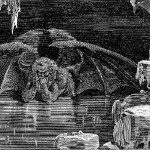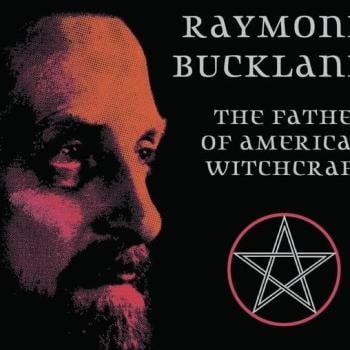Last year during a panel discussion at a large Pagan festival I heard a fairly prominent Pagan-person comment that “Wicca was missing the ____.” I’m not going to tell you who said it, or what that person thought Wicca was missing since I like to think it was a simply a comment that came out wrong. However, it’s something that has stuck with me over the last 12 months and I can’t let it go, because my Wicca is missing exactly nothing.
My Craft is continually evolving and being refined, but it doesn’t need an injection of outside elements. I’ve certainly never thought of it as missing something. I’ve tweaked my ritual over the last few years and given certain rites more thought, but I’ve never really added anything to it, nor do I plan to. The Wiccan-framework has worked extremely well for me the last twenty years, there are no missing parts.
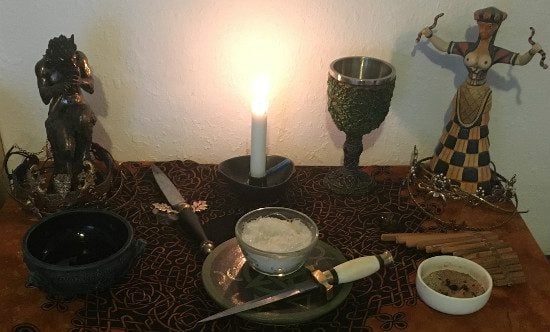
Wicca has always provided me with:
A ritual system that simply works. Four quarters, a circle, deity, honoring of the Earth, it’s all there in Wiccan ritual and always has been. I’ve tried other types of rituals over the years but nothing works for like a Wiccan circle. It has all the magic, mystery, and power that I need.
A rich history equal to any other religious tradition. Wicca is most likely not a 3000 year old ancient-pagan tradition linked to antiquity, but it didn’t emerge in a vacuum either. As a part of the Western Magical Tradition Wicca’s history spans millennia. Pick up a medieval grimoire or one of the Greek Magical Papyri and you’ll find things that look similar to Wicca within them. Those things are in Wicca’s DNA and are a part of our heritage (and the heritage of magickal folk in general).
Wicca’s more immediate history is also worth celebrating. Gerald Gardner, Doreen Valiente, Maxine Sanders, Vivianne Crowley, and my own beloved Lady N., we’ve had outstanding teachers and innovators over the last seventy years. Seriously, all I need to make a ritual great is a smattering of Doreen Valiente poetry. Gerald and Doreen sit on my Temple Room shrine for a reason, and that’s because they kicked ass, broke down barriers, and gave Wicca to the world.
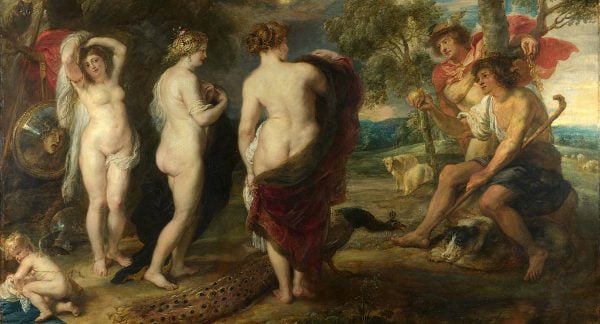
A way to touch the divine. Wicca does not have a creed, so one can be Wiccan and not believe in deity, but for me, Wicca has always been a direct channel to the divine. There’s a little rite within a lot of Wiccan ritual called Drawing Down the Moon, and during that rite The Goddess (and often “a goddess”) speaks with the lips of her Priestess, touches with the hands of her Priestess, and loves with the heart of her Priestess. When I hear ridiculous talk that Wiccans don’t believe in deity all I can do is scoff. Drawing down the moon is central to my practice and one of the most important rites in Wicca.
Even when my coven doesn’t draw down I can still feel the power of the divine in the circle. Sometimes it manifests as an energy that affects consciousness or mood, and at other times it’s like being in the middle of the warmest, most intimate embrace you can imagine. When we talk about “walking between the worlds” I think we really mean it.
An ethical system that’s as good as any other. There are several different interpretations of The Wiccan Rede, you know that old chestnut, “An it harm none, do what you will.” I’ll admit that it’s imperfect, but it also works for me. Nearly every religious tradition sets a ridiculously high standard when it comes to how we interact with others, why should Wicca be any different? (And that “ridiculously high standard” is one of the reasons so many of us are ever striding forward in our attempt to be better human beings.)
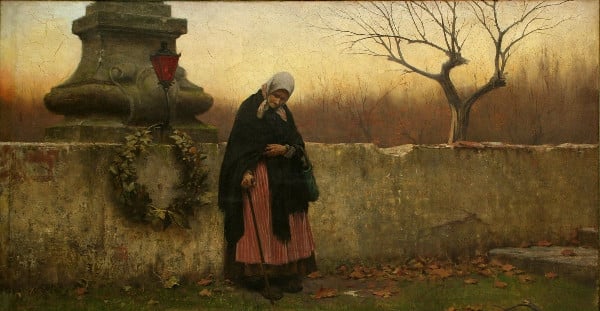
Comfort in the face of death, and hope for what lies beyond. Wicca takes many of its cues from the natural world and one thing I’ve noticed in the natural world is the continual triumph of life over death. Things don’t always return just as before, but they do return. There is a cycle and I can see it play out on a day to day basis from the window in my office (and better yet, when I’m simply outside).
I’ve also felt the spirits of the dead join my circle at Samhain and on a few other occasions. I realize that such proclamations will sound ridiculous to some, but I won’t apologize for what I was able to experience. Can I rationally explain it? Not necessarily but maybe that’s besides the point. Religion exists to comfort us in times of tragedy or need, feeling those I’ve lost with me at Samhain is more than comforting.
A strong “second-level,” when I’ve chosen to explore it. One of the things that most bothers about Paganism online is how some people love belittling the beliefs and practices of others. There’s a new love of labels out there that I’m uncomfortable with, not to mention the usual refrains of fluffy, not-serious, and Wicca-lite. There are practices under the Wiccan-umbrella that I sometimes think are a little simplistic, but as long as those practices work for the people doing them, why should it matter?
Wicca is as serious as each practitioner wants it to be, and while I whole-heartedly believe that there’s a “next-level” within it, it’s probably not for everyone. I’m a very happy initiate and my training in that tradition has made my practice more solid and concrete, but I can see all sorts of people not wanting to be an initiate for a variety of reasons. And I’m not sure that initiatory traditions are necessary for people looking towards that next level. Just taking the work more seriously is good enough for some, or perhaps focusing more on the truly mysterious aspects of the Craft like the Great Rite or Drawing Down the Moon.
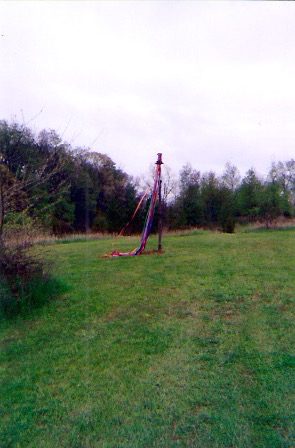
Beliefs that celebrate what I find sacred in this world. The Great Rite teaches that sex is sacred, sex is holy, and that the human body in all of its forms is worth celebrating. The Wheel of the Year puts me in touch with the natural world and speaks to the ongoing wonder of nature. Wicca values people, places, and things. I too value people, places, and things; it’s a very natural fit. I don’t want to be a part of a tradition that believes in original sin or looks to other faith traditions to figure out what is worth celebrating. I know what’s worth celebrating, and I celebrate those things in my Wiccan circle.
Wicca is also the home of my chosen family. There are few things more intimate than a true coven situation. Rituals aren’t just about celebrating deity, the seasons, and magic, it’s also about celebrating the bonds between all of us.
Room for growth and creativity inside the circle. I have never felt like I was denied the joy of innovation while in a Wiccan circle. Wicca has always provided me with this great skeleton for rituals that’s very bendable. There are rooms to add some things and tweak others. My creativity is allowed to be a part of the process, and that applies to every coven I’m a part of. Certainly there are things that make Wicca Wicca and they shouldn’t be trifled with or removed from the circle, but within that context there’s always been room for lots of “new.” I write rituals for the people I circle with and Wicca allows me to do that.
So while someone else’s Wiccan practice might be missing something, mine is most certainly not, and please don’t tell me that it is.


